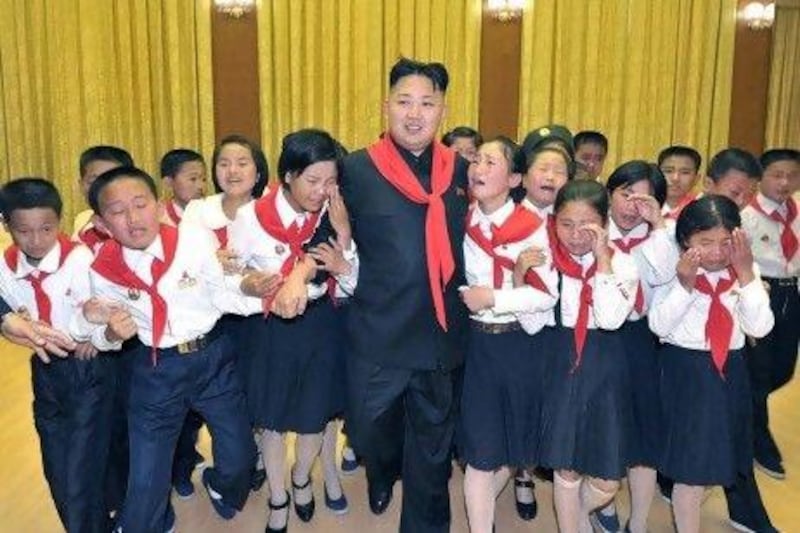WASHINGTON // In the supposed workers' paradise of North Korea, inequality is assigned at birth, a study by a US-based human rights group says.
Education, job, access to scarce food and health care, and even whom you marry all hinge on how loyal your forebears are viewed to have been to the Kim dynasty that took power six decades ago.
The study released on Wednesday by the Committee for Human Rights in North Korea says all adults in the socialist state are categorised as one of three classes: loyal, wavering or hostile.
The nongovernment human rights group says it amounts to a caste system.
Despite the emergence of informal markets since the late 1990s challenging state control, the study says the class system persists and is behind the discrimination and abuses faced by the lowest echelons of the North's closed society.
"Throughout its 64-year existence, the Kim regime has claimed that North Korea is an egalitarian workers' paradise," said the committee's executive director, Greg Scarlatoiu. "Yet, inequality is assigned at birth, perpetuated throughout a person's lifetime and cruelly enforced by those in power to benefit themselves and their supporters."
Lee Sung-min, a North Korean defector living in Seoul, said because his late grandfather was accused of collaborating with the Japanese during the 35 years Japan ruled South Korea as a colony, his family was stigmatised by North Korean authorities and he was blocked from joining the Workers' Party or entering the school he wanted to attend.
"No one is free from songbun in North Korea," Lee said.
The North Korean government denies such a discriminatory class system exists.
The study is based on interviews with 75 North Korean defectors, including as recently as 2011. It also cites a 1993 manual issued by North Korea's Ministry of Public Security to guide its officials on how to investigate a citizen's socio-political classification, or "songbun", which translates in Korean as "ingredients."
The ministry maintains a file on everyone from the age of 17 that is updated every two years, the study says.
Numerous defectors' interviews show that those who are young when they leave North Korea see songbun as decreasingly important, while older defectors say songbun still matters, the report said.
There was no sign that new ruler Kim Jong-un, the third in the dynasty, will change the policy. The study concludes that would be a direct threat to the North Korean elite and could undermine his consolidation of power.





